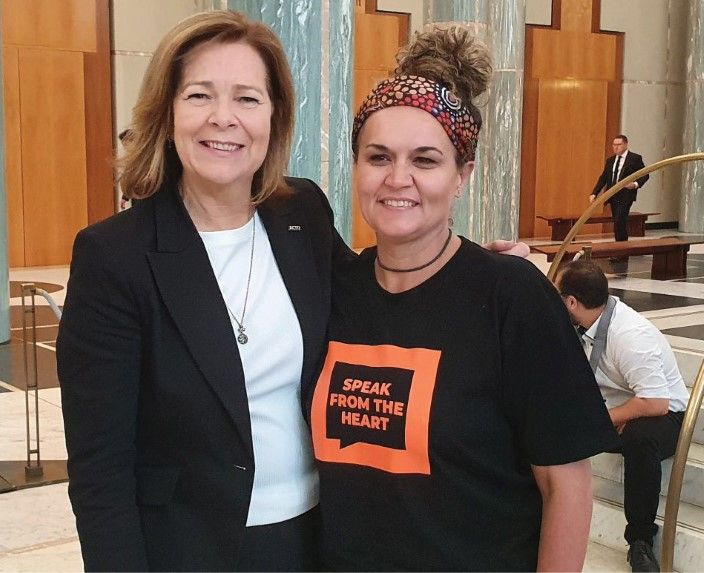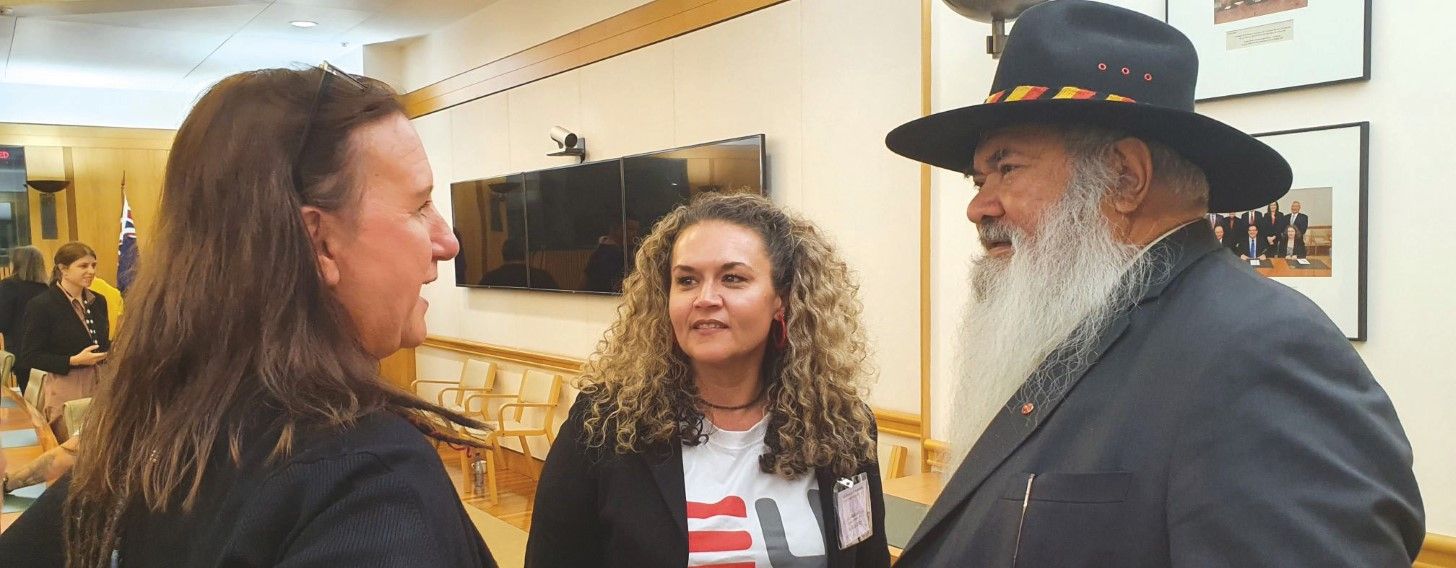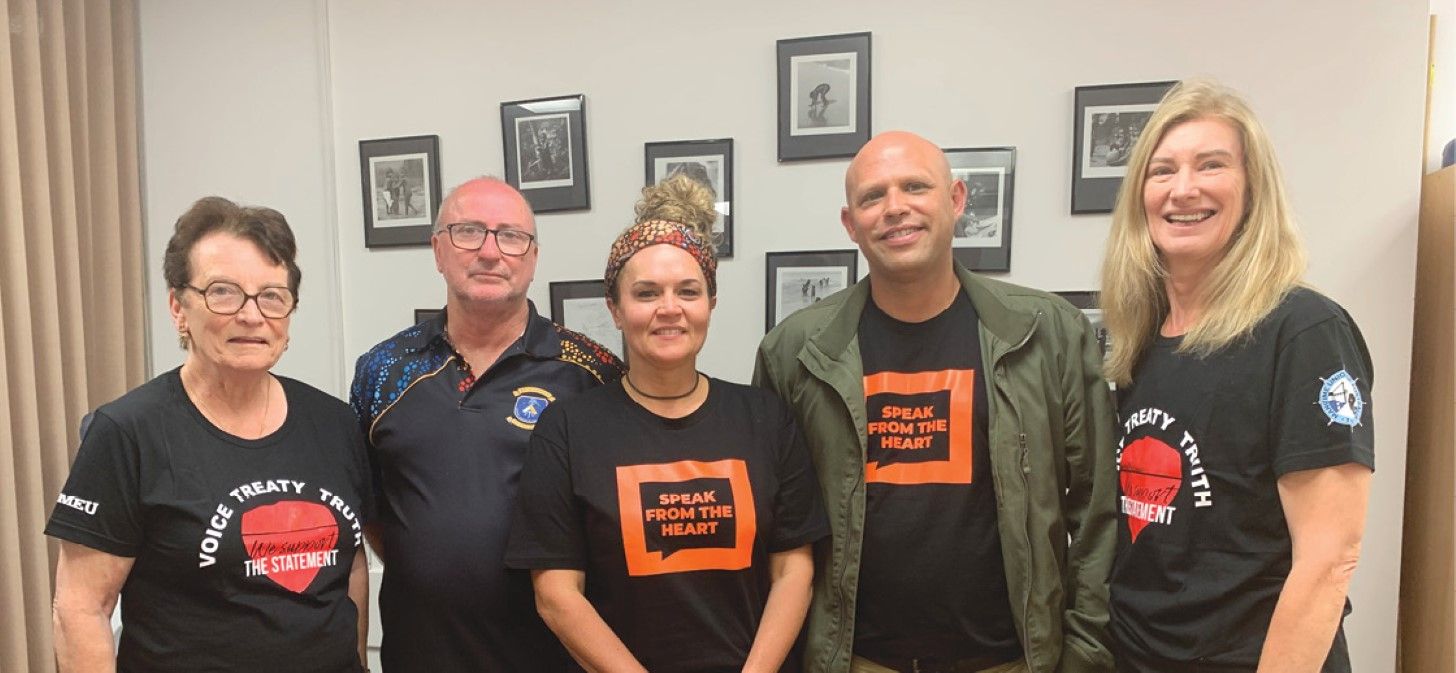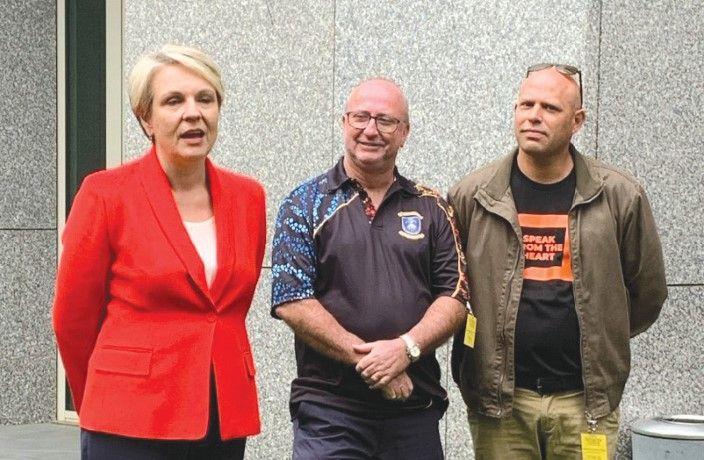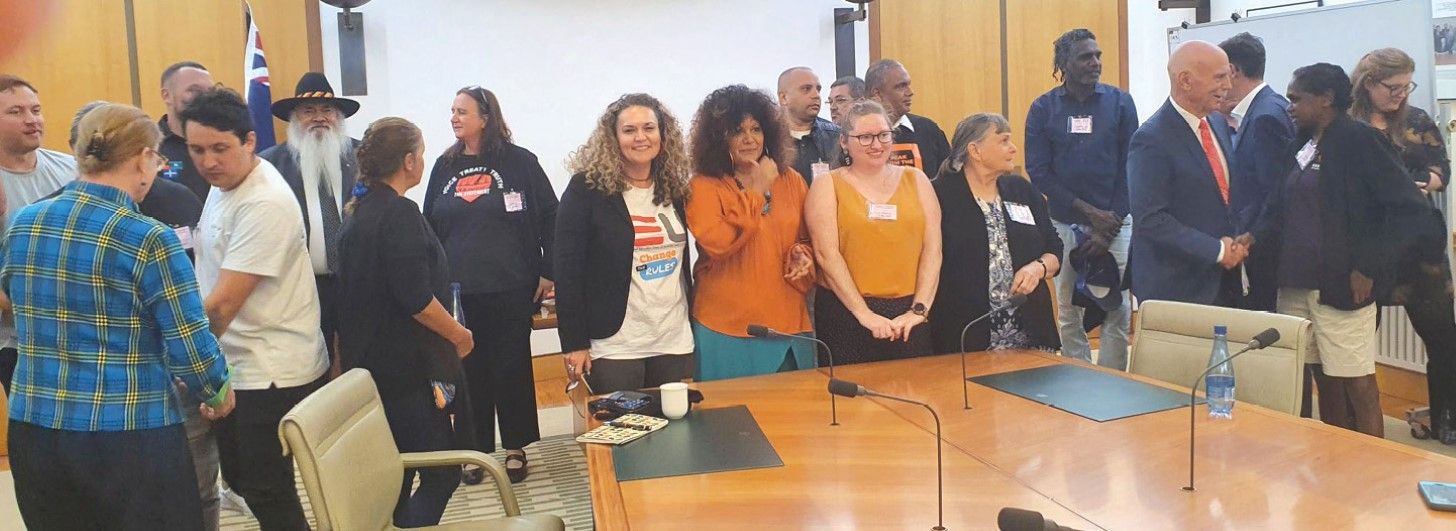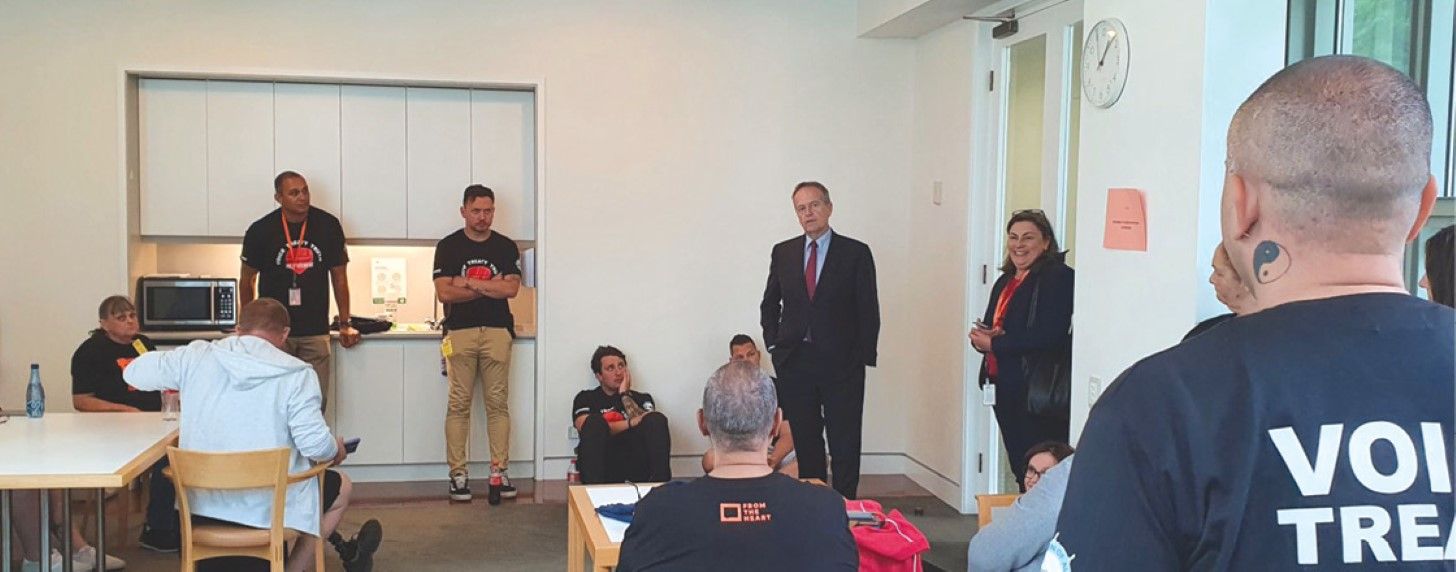“Aboriginal and Torres Strait Islander people understand the issues on the ground in our community, so we know the best ways to address them. Instead of listening to the bureaucracy, parliament and the government need to listen to us to address the problems,” Cooper said.
“The best way for MPs to understand the need for a Voice is by listening to stories. Stories create emotional connection to a policy, showing MPs why there is a real need for change in local communities. Our delegation allowed us to tell the politicians our stories.”
Cooper said the Voice would be a fair and unifying reform allowing all Australians to come together to deliver real change for Aboriginal and Torres Strait Islander people.
In the 1967 referendum, Australians voted overwhelmingly for Aboriginal and Torres Strait Islanders to be counted in the census. “Fifty years since that referendum, it’s time our voices were heard – only when our voices are heard can we start to close the gap that exists in Australia,” he said.
“Treaty is important to us, but we know that we need a strong voice enshrined in the Constitution first. We have seen what happens in negotiations when we don’t have real power at the table. We need to make sure there is focus on achieving a Voice before we turn our minds to treaty.
“A constitutionally recognised – not legislated – Voice gives Aboriginal and Torres Strait Islander people recognition as the first peoples of Australia and overrules the notion of Terra Nullius.”
Cooper said meeting supportive Labor MPs was encouraging. He enjoyed Bill Shorten’s address, in which he paraphrased a quote from Martin Luther King Jr. “How can Aboriginal and Torres Strait Islander people pull themselves up from their bootstraps when they don’t own a pair of boots?” Shorten said. “A constitutionally recognised voice would allow Aboriginal and Torres Strait Islander people to own those boots.”
Luke Wighton
A Wiradjuri man and Aboriginal Education Worker with the Catholic Diocese of Wagga Wagga, Luke Wighton works in several schools, sharing Aboriginal perspectives across the curriculum.
Wighton felt empowered standing with politicians and unionists in a public show of support for the Voice to Parliament.
This inspiring experience would inform his discussions with students in the future, he said.
“Aboriginal and Torres Strait Islander people haven’t had a Voice in this country for so long,” he said. “It’s important to have that enshrined in our Constitution so that no matter who is in government, the Voice is protected.”
Meeting Pat Dodson, Linda Burney, Thomas Mayor, Bill Shorten, the descendants of Vincent Lingiari and representatives from other unions was “absolutely inspirational”, Wighton said.
“It was a real buzz to be there, and ever since I’ve returned home, I feel empowered by the experience,” he said. “It has given me hope for the future. I feel like things are on the rise for all Australians, and definitely for Aboriginal and Torres Strait Islander people.
“It was a once-in-a-lifetime experience. It was a chance to be part of history in the making. I’m proud to say unions are playing an important role in this campaign.”
